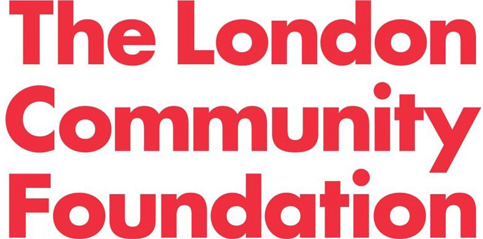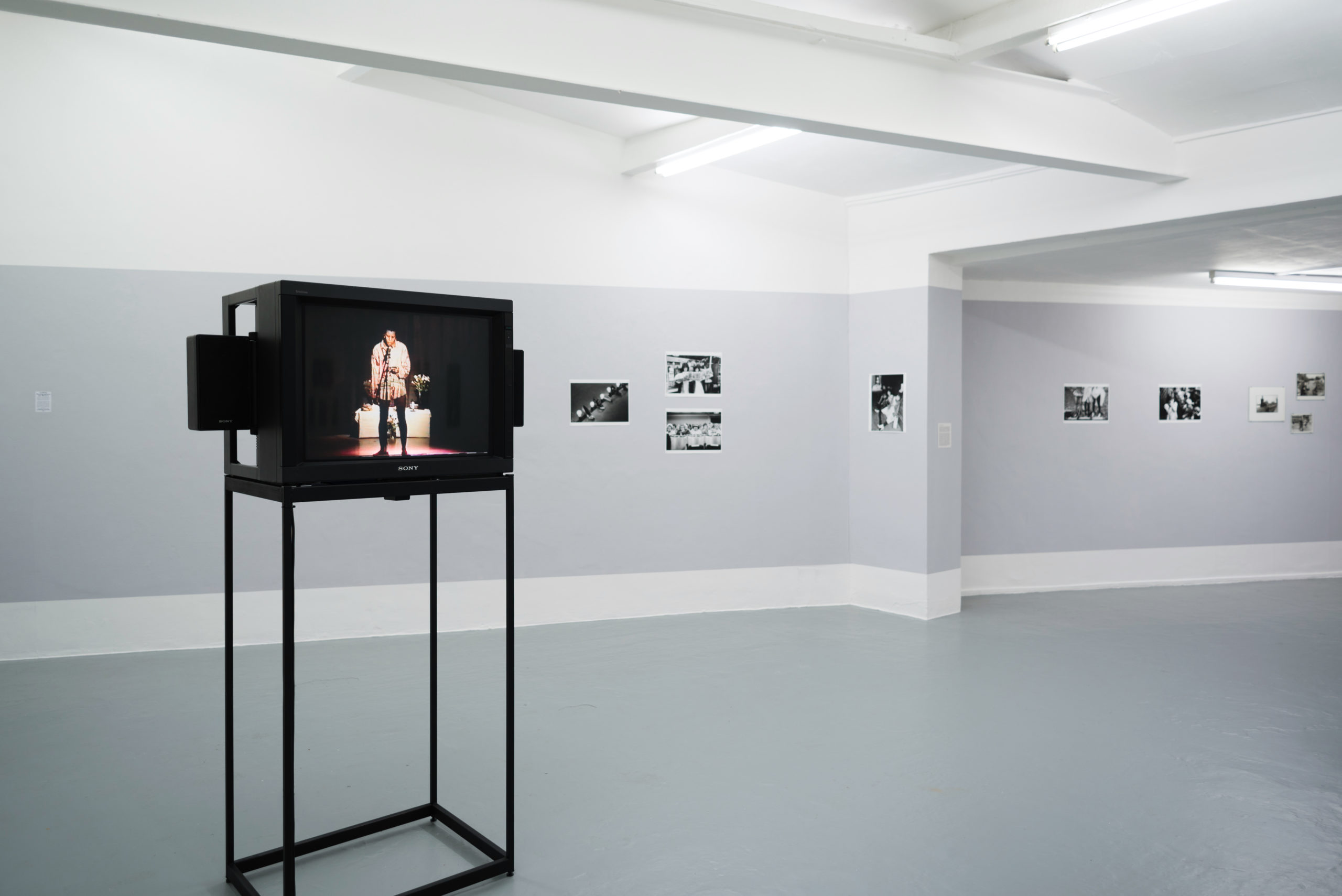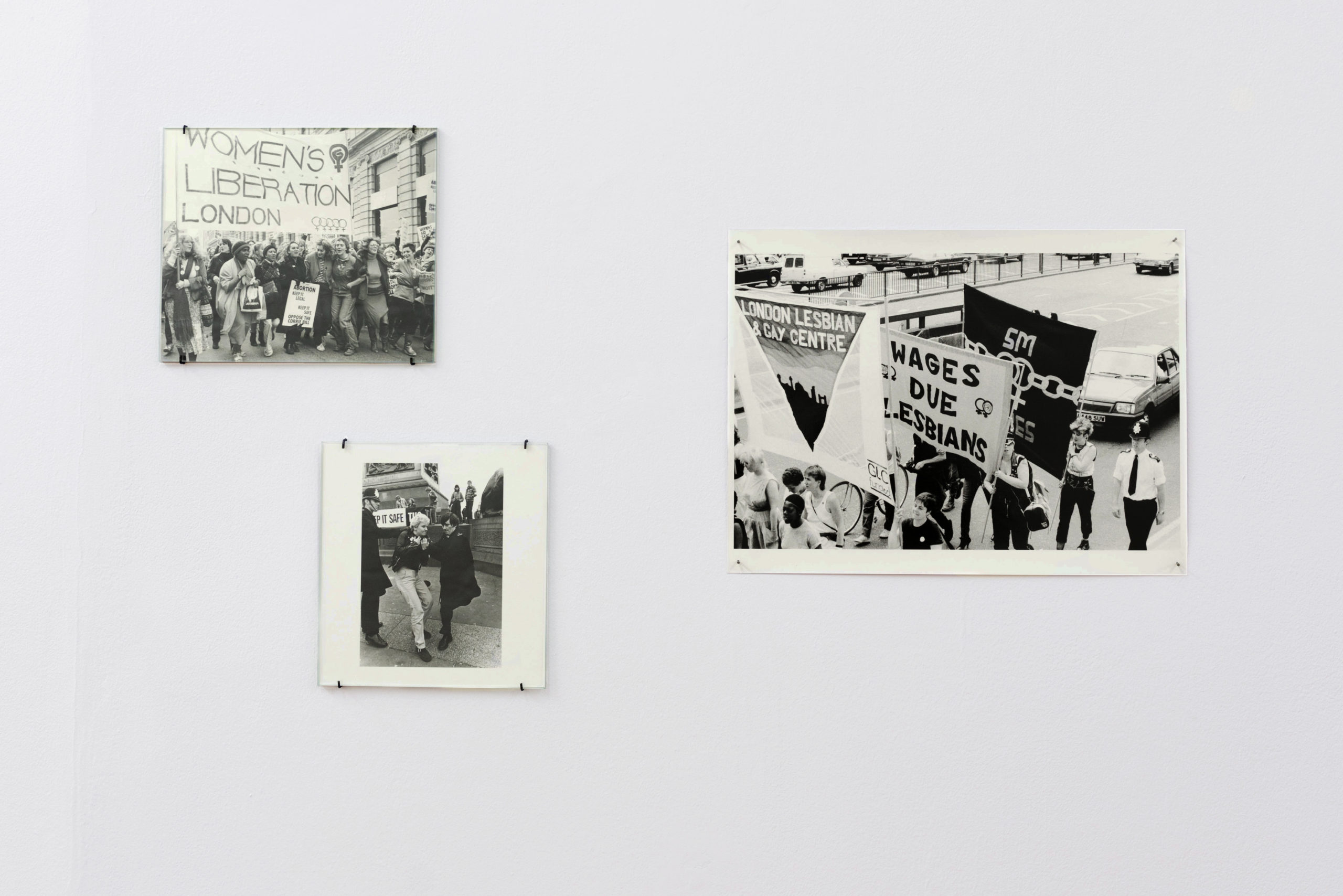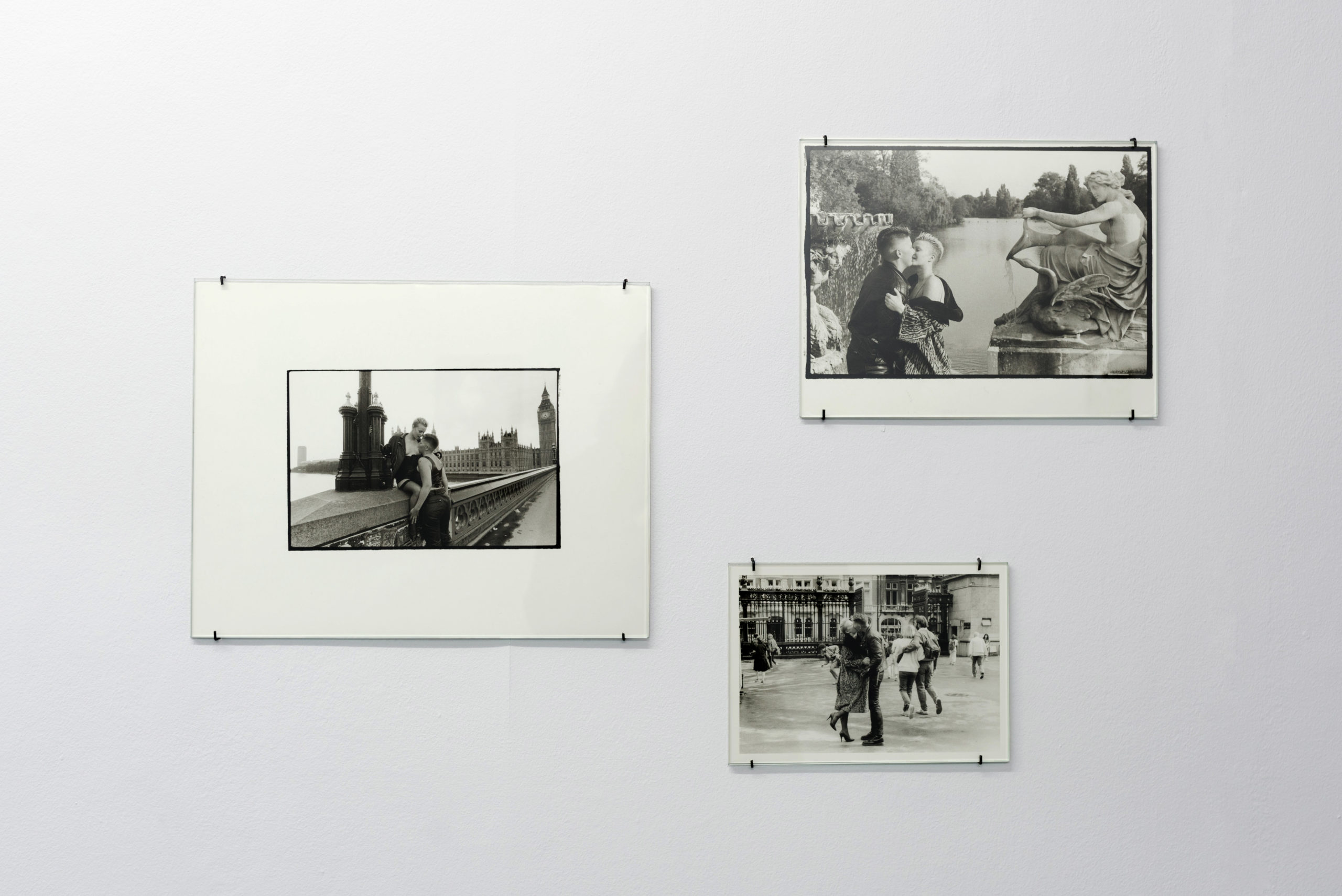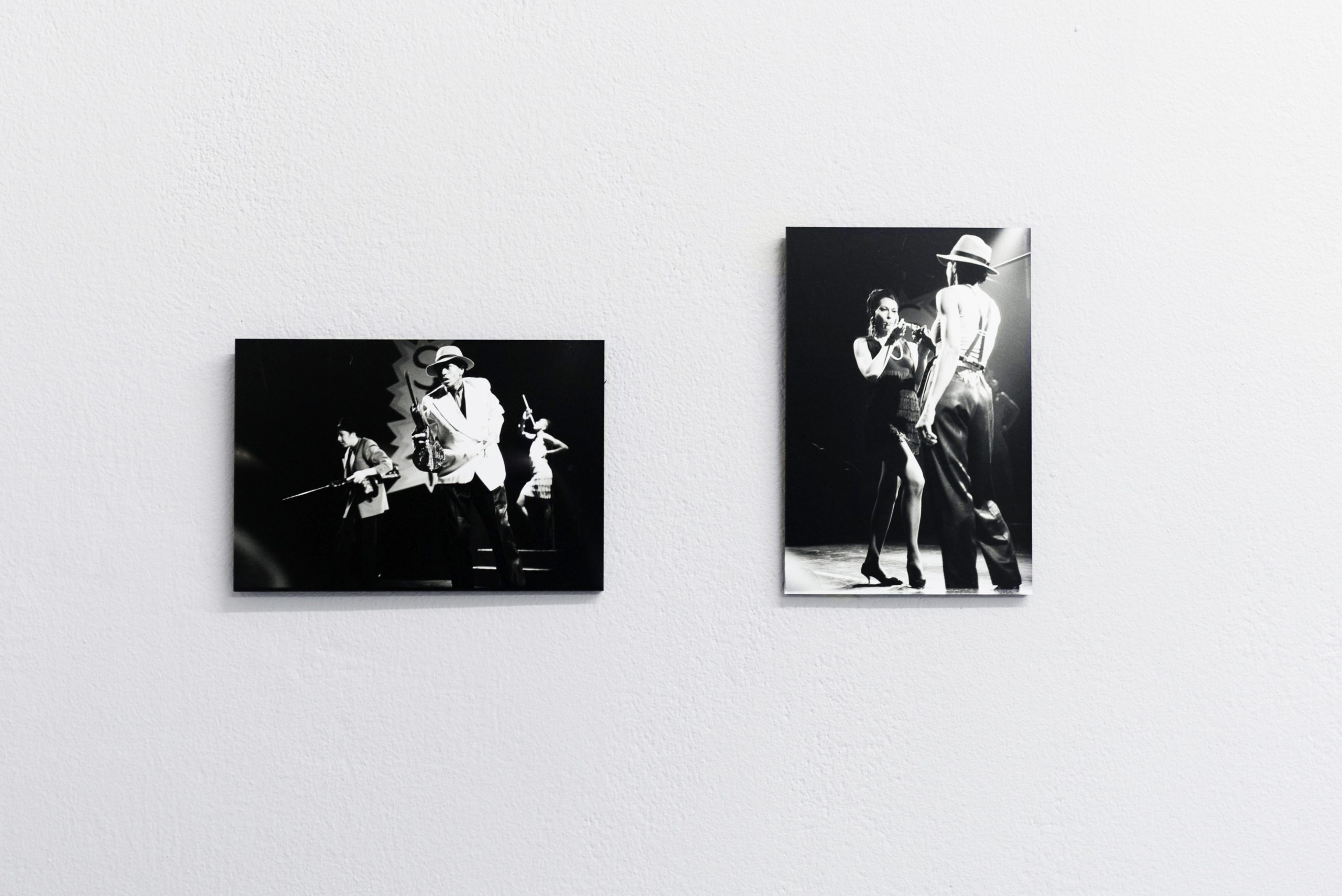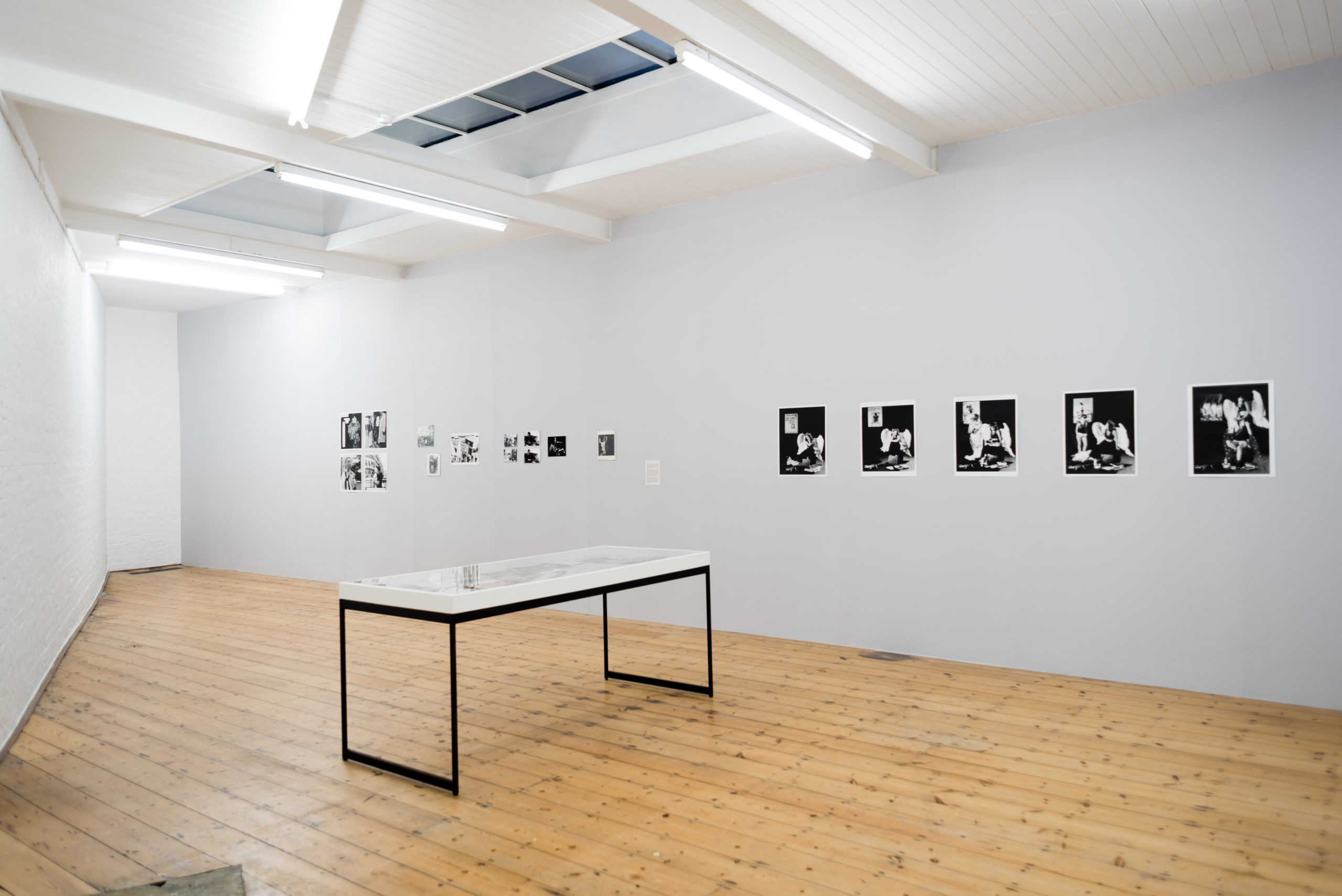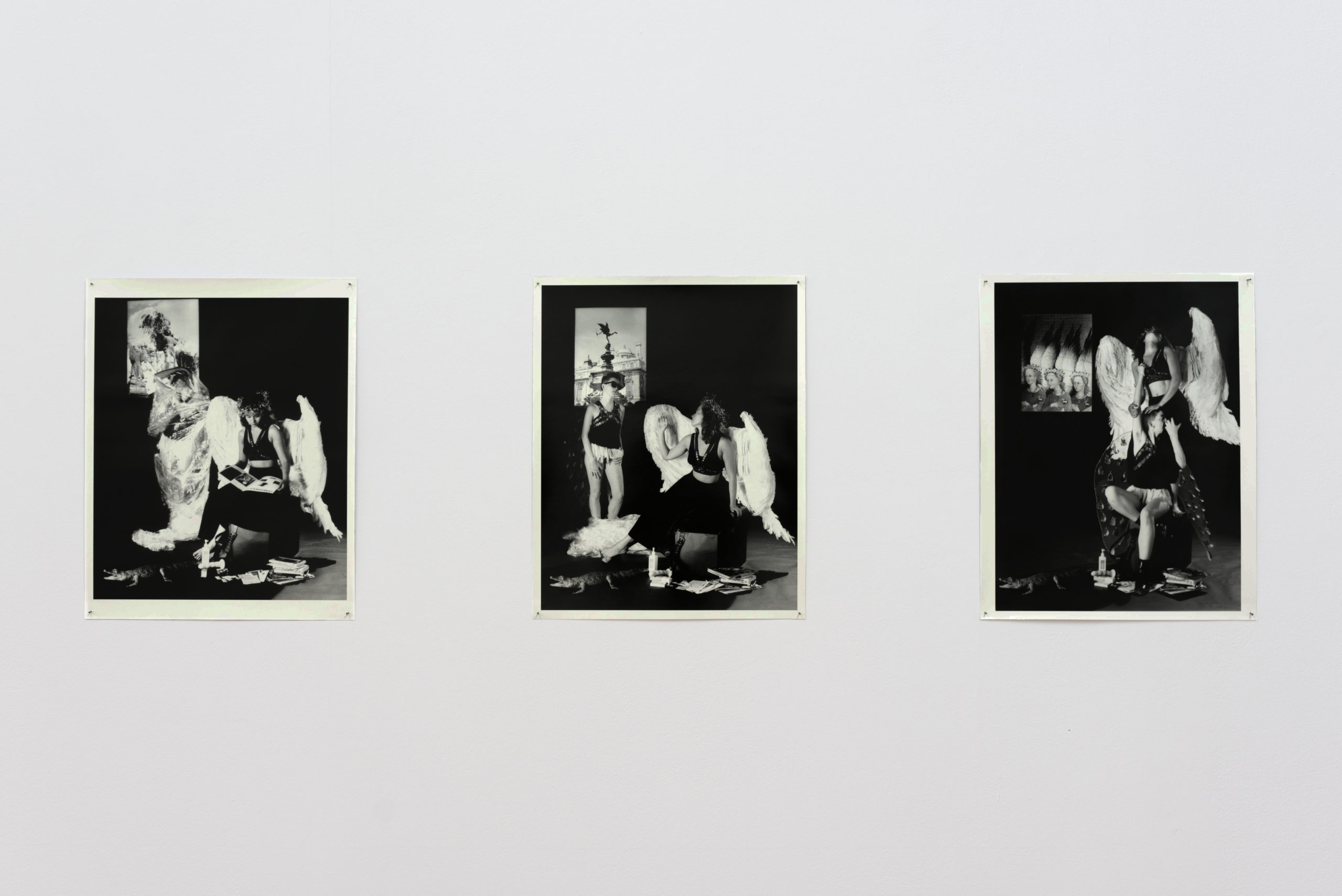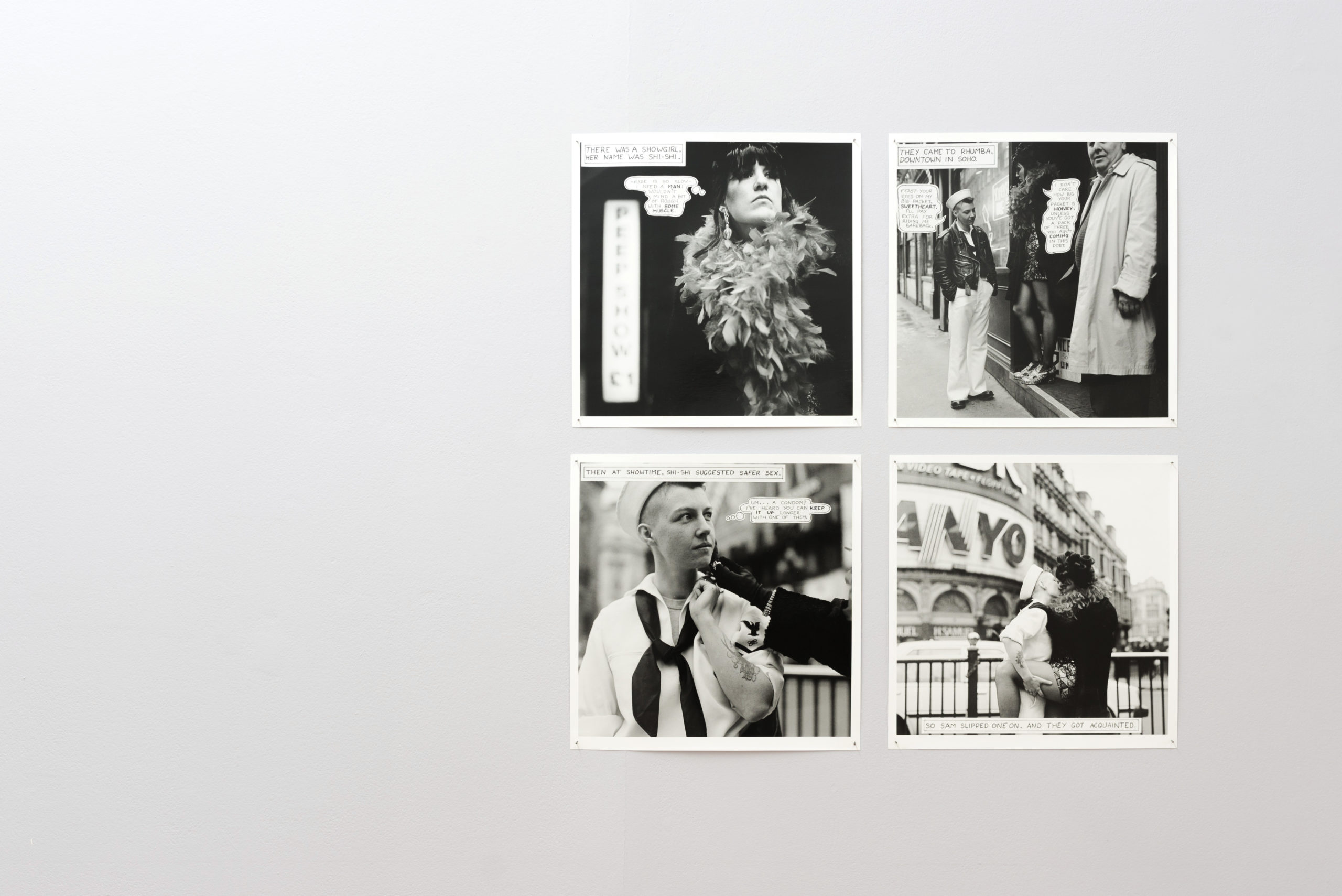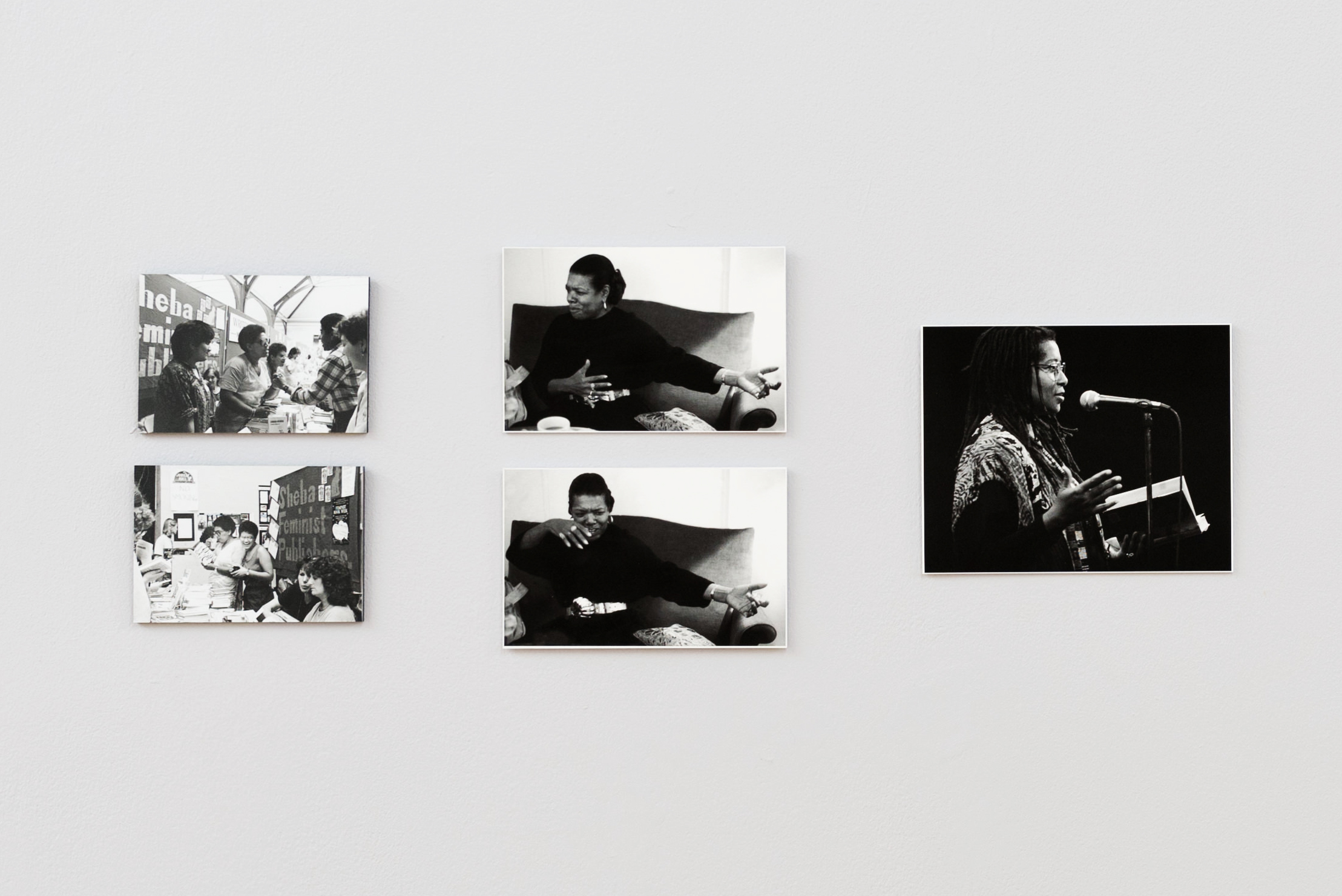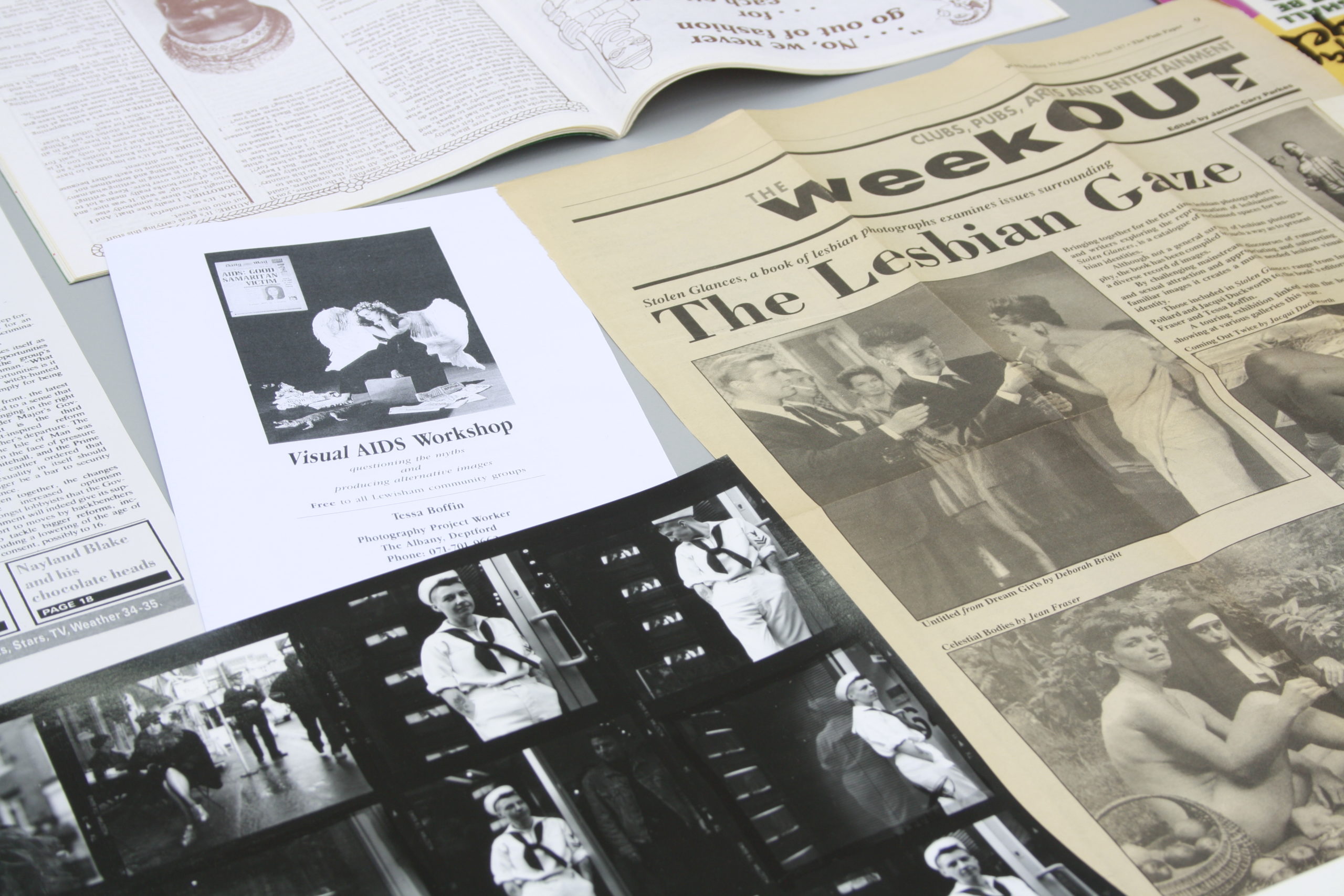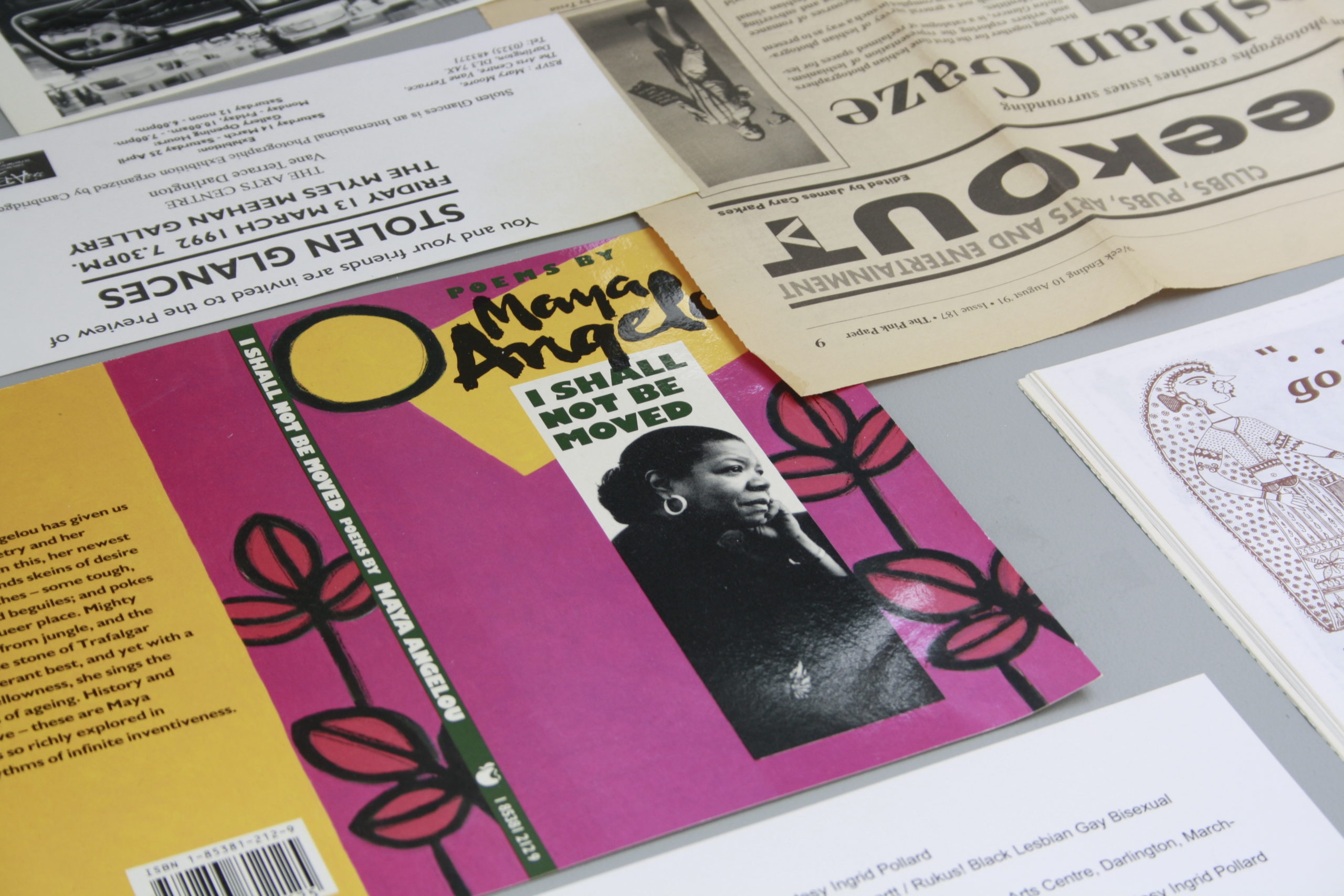Out of the clubs and into the streets, dykes have created, fought for and celebrated spaces of representation beyond the privacy of the bedroom. Hot Moment examines photographic representations that emerge from the threshold of intimacy and public life in the 1980s and 90s. Curated by Radclyffe Hall, the exhibition presents the work of Tessa Boffin, Ingrid Pollard, and Jill Posener – three photographers for whom lesbian identity was never a coherent category to be straightforwardly translated to image by the camera. Instead it signals a style, a politics, and an attitude of production.
Boffin, Pollard, and Posener inhabited overlapping contexts in London during the 1980s. Thatcherite policy was transforming the city in which they all lived and worked, and each artist was spurred by an ethics of collectivised public politics and a desire to document the activities of a community for its members. Photography was a widely accessible medium that expressed a sustained interest in the politics of public engagement, and Hot Moment evidences the diversity of photography’s informal distribution networks and audiences at that time – from billboards and book covers to club nights and street performance. Photography was a testing ground. Comprised as much from a network of community-led workshops, galleries and darkrooms as it was the technological means of reproduction, the idea of a public was often intentionally limited either by context or circulation. This was sometimes an answer to the necessities of personal safety, creating spaces in which people and practices could thrive.
The images in Hot Moment emerge from the context of contemporaneous political struggles around reproductive rights, the onset of HIV/AIDS in the UK, and the legislation indicated by Section 28. As these issues were reported in the newspapers, many lesbian-identified photographers reacted against homophobic and sexist representations peddled by the mainstream press. And while newspapers offered possibilities for jobbing photojournalists in the form of press gang photography (as was the case for Posener), inevitably limited and often negative depictions of homosexuality and daily doses of misogyny also became oppositional subject matter for artists. Posener’s widely circulated photographs of vandalised billboards represent witty feminist ripostes to the heterosexism of commercial advertising. Boffin’s Kings Trial, meanwhile, highlighted the role of the tabloid press in the pathologisation and criminalisation of expressions of FTM crossdressing and trans-masculinity. This project remained unrealised at the time of Boffin’s death, and is exhibited here alongside contextual references in The Sun and Capital Gay. Elsewhere, cultural workers sought to create and frame their own contexts of international exchange, bypassing mainstream media completely: Late Start Film and Video Collective (of which Pollard was a member) documented their own conversations among friends and peers, including Audre Lorde and Jackie Kay.
In queer cultures, the stage offers a space of escape – a place of communal visibility, shared production, and performed desire. Pollard’s photographs of Club Sauda, a cabaret organised by and for Black women, were first exhibited in the context of the club itself. Posener’s collaborations with women’s theatre company Blood Group confirmed the photographers commitment to anti-doctrinate forms of feminist politics including representations of sex and sex work (Posener went on to become the first named photoeditor of San Francisco-based lesbian erotica magazine On Our Backs). The constructed image allowed Boffin to stage a system of signs in her highly orchestrated photo shoots, which include numerous literary and art historical references and nod to the staging of sex acts at queer clubs that Boffin and friends frequented and sometimes performed at.
Hot Moment is a group portrait of three photographers, one which takes its title from Pollard’s own recollections on the period. Pollard writes, “It was now commonplace for me to be with a camera and I realised that what developed from this was a personal aesthetic of the ‘snap-shot’, the fleeting exposure of a split second, capturing the hot moment of a performance. During the eighties I was working with and photographing actors, dancers, writers and theatre companies. It was a work of fantasy and make believe where the detail of a gesture or the caress of light on a shoulder were part of the alchemy that captured my attention.” In this space of fantasy, dyke photography offered an internal visibility crucial in shoring up temporary communities otherwise subject to periodic dispersion and ongoing precarity. The medium was a critical means to document cultural activity and community organising taking place in tandem with artists’ practices, namely: live theatre, club spaces, book fairs, and, of course, spaces of political protest. Hot Moment depicts the interlinked activities of these lesbian-identified communities of activists, writers, and performers. The exhibition is animated by the desires for and a politics of representation.
Hot Moment has been made possible with the generous support from Auto Italia’s 2020 Headline Exhibition Supporters Cockayne – Grants for the Arts and London Community Foundation, and Arts Council England’s National Lottery Project Grants.
Auto Italia’s commissions are made possible by our Exhibition Circle and Member supporters.
Radclyffe Hall is a concomitant group of artists and writers dedicated to exploring culture, aesthetics and learning through the lens of contemporary feminism. With no fixed membership or base, Radcylffe Hall was first described in 2015, though it has anonymously participated in a number of public presentations prior to this date, in art institutions in Tallinn, Glasgow, New York, and London. Their exhibition, Deep Down Body First, was shown at Glasgow International (2018). Radclyffe Hall has no named individuals, and their activities also occur under other names and works retroactively.
Tessa Boffin (b. 1960 – d. 1993, UK) was a photographer, who studied at the Polytechnic of Central London. The work she produced in the 1980s and early 1990s was exhibited in numerous exhibitions contemporaneously including at Stills Gallery, Edinburgh; Camerawork, London; and Cambridge Darkroom. With Sunil Gupta she co-edited Ecstatic Antibodies: Resisting the AIDS Mythology, published by Rivers Oram Press (1990), and with Jean Fraser she co-edited Stolen Glances: Lesbians Take Photographs, published by Pandora Press (1991). A partial archive of her papers and books is held at the University of Creative Arts, Kent. Boffin’s estate is looked after by her friend and collaborator, Sunil Gupta.
Ingrid Pollard (b. 1953, Guyana) is an artist and photographer. She was one of the founding members of Autograph, and is an Honorary Fellow of the Royal Photographic Society. Pollard was the Inaugural Stuart Hall Research Fellow (2018), and received the BATIC Artist Award (2019) and a Paul Hamlyn Foundation Award (2019). She has been an artist-in-residence at Glasgow Women’s Library, (2019); Croydon College of Art, (2011) and Project Row Houses, Houston Texas, US, (2004). Her work has been exhibited at Dundee Contemporary Arts, Dundee (2012); Victoria & Albert Museum & Photographers Gallery, London (2012); Tate Britain, London (2011); Kingsway Gallery, Goldsmiths, London (2009), and Wysing Arts Centre, Cambridge (2001).
Jill Posener (b. 1953, London) is a photographer and playright. She trained as a stage manager at the London Academy of Music and Dramatic Arts, and was the first female member of Gay Sweatshop (Britain’s first gay professional theatre company). She wrote the first lesbian play, Any Woman Can, to tour with the company (1974). As a photographer, Posener was the photo editor of On Our Backs (1988-89), and has lectured at CalArts and the University of California at Santa Cruz. Her two books of political graffiti photos, Spray it Loud, published by Routledge & Kagan Paul Ltd. (1982) and Louder than Words, published by Thorsons (1986), together sold more than 35,000 copies. She was the co-editor, with Susie Bright, of Nothing But The Girl: The Blatant Lesbian Image, published by Cassell (1996).


